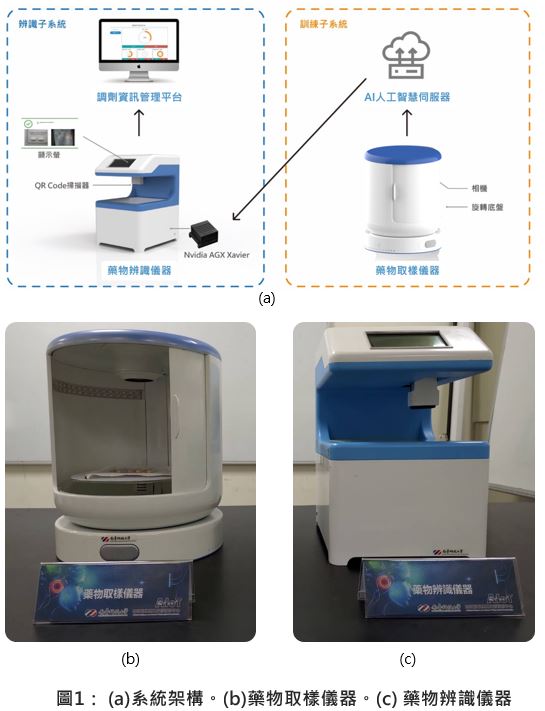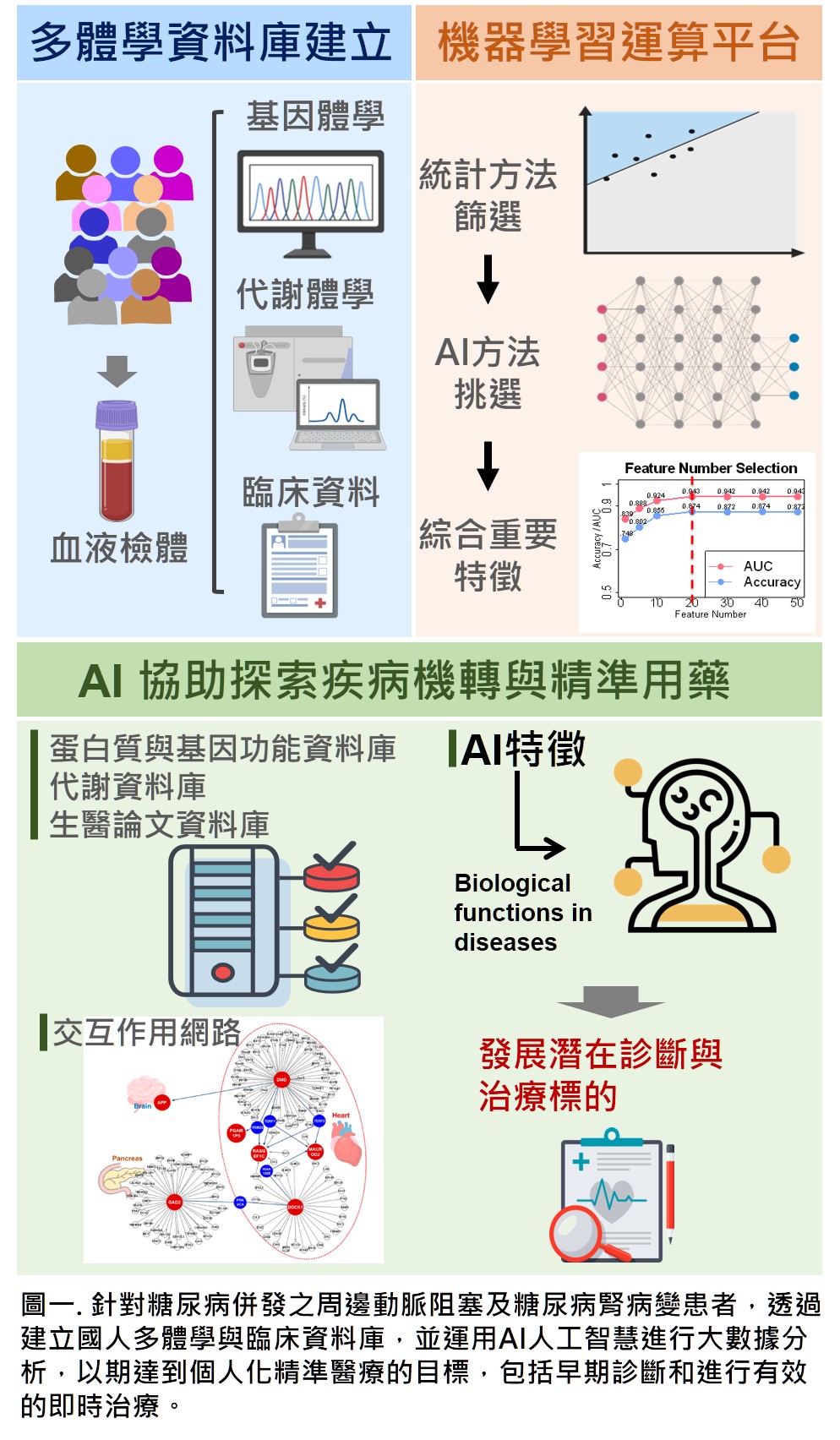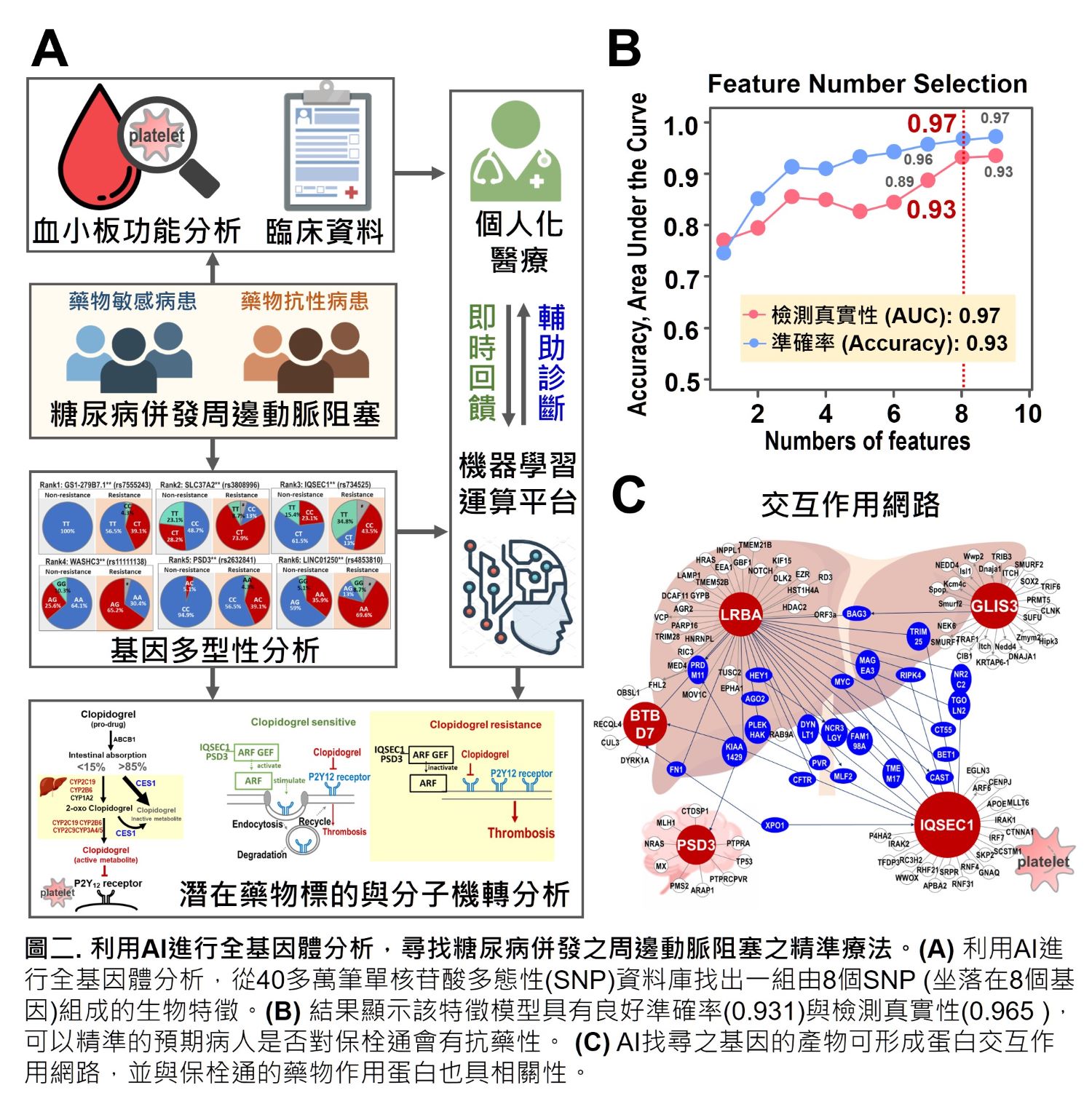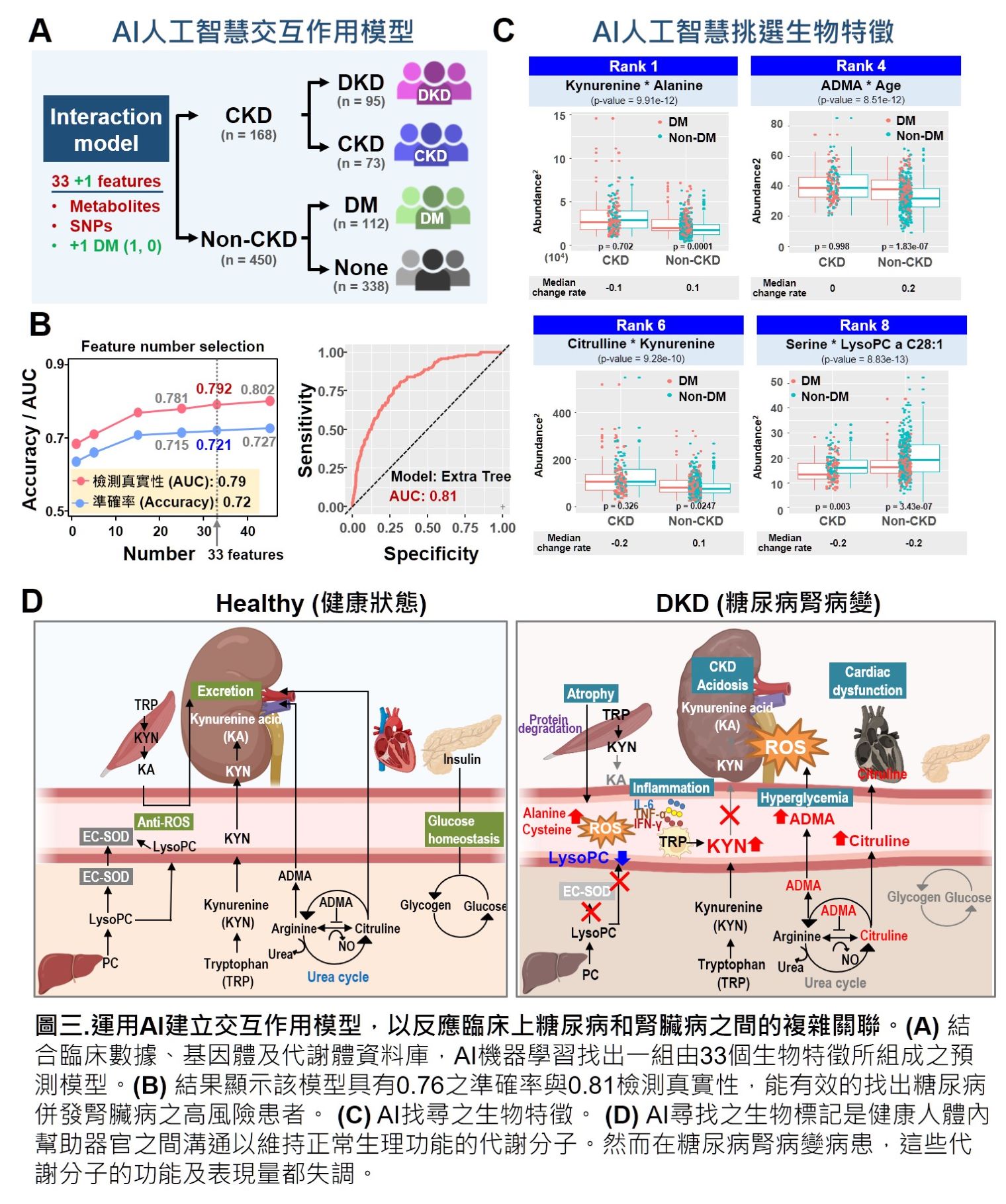| Technical Name | Artificial Intelligence Advances Precision Medicine for Diabetes Complications | ||
|---|---|---|---|
| Project Operator | National Health Research Institutes | ||
| Project Host | 司徒惠康 | ||
| Summary | "We integrated AI algorithms, clinical informationmulti-omics database to develop platforms for precision medicine of two major diabetes complications, namely diabetic peripheral artery disease (DPAD)diabetic kidney diseases (DKD). Moreover, to get insights into the molecular pathogenesisto advance the mechanistic understanding of these two diseases, we re-construct the connectivity mapsbiochemical pathways using the AI-selected features with annotation. Our findings demonstrate the feasibility of personalized medicine for antiplatelet therapy in diabetic PAD patients. Regarding DKD, our discovery not only enhances molecular understanding but also provides an opportunity for early interventiontiming treatment of |
||
| Scientific Breakthrough | Previous studies mainly used one statistical procedure combined with one machine learning method. However, we applied AI algorithms to integrate multi-omics datasetsclinical information to develop the prediction models. Moreover, we used features with annotation to reveal the molecular mechanism underlying disease pathogenesis. For antiplatelet therapy of diabetic PAD, we developed a biomarker signature of 8 SNPs to identify clopidogrel-resistant patients with an excellent accuracy rate of 0.931. For DKD progression, we performed trans-omics analyses of metabolomicsSNPs,developed a biomarker signature of 33 features to identify diabetic patients with a high risk progressing to DKD this model has an accuracy rate of 0.76. |
||
| Industrial Applicability | "Based on the Bureau of National Health Insurance in Taiwan, patients with antiplatelet therapy of clopidogreldiabetic kidney disease together have spent top medical expenditure. Thus our prediction models have a great impact on medical cost-saving. Three potential bio-industry applications: (1) The AI-based technology can be developed as analytic software to be used by researcherscompanycharged with license fee. (2) The prediction models can be developed as a SaMD (software as medical device) to be used by physicians for precision predictiontreatment. (3) The selected omics featurestheir connectivity map of biological functions are patentable. It can be licensed to pharmaceutical company for drug development." |
||
| Keyword | Artificial intelligence (AI) Machine learning (ML) Multi-omics databases Diabetes complications Diabetic peripheral artery disease (PAD) Diabetic kidney diseases (DKD) Precision medicine Personalized medicine | ||
- Contact
- Yi-Ju Chou
- yjchou0810@nhri.edu.tw
other people also saw







